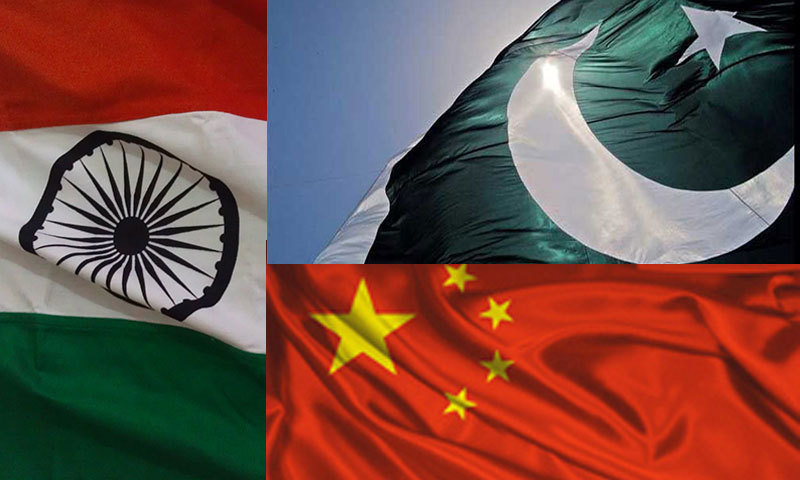In an opinion piece, Lobsang Wangyal, the owner of TibetSun.com and a well-known commentator of Tibetan affairs, paints a realistic but very bleak picture. His specific focus is on the Tibetan leadership’s current state of affairs in relations to the latest developments in Sino-Indian bilateral relations.
Wangyal begins with the ramifications of the Doklam standoff. While India possesses a formidable army that rivals China’s, the former still chose to retreat during the conflict. And though it seemed imminent that India would launch an attack on Chinese forces at the height of the land dispute, somehow the conflict fizzled out. All this was despite persistent rumors that the Chinese had retained a military presence in the area and that unofficial reports indicated they were setting up a military base there.
Meanwhile, China has also been engaging in soft diplomacy, by heavily investing in countries bordering India. Not only has she been courting India’s traditional allies, but China has also been investing in India’s enemies too, bringing Pakistan under Chinese influence to be held as a potential trump card against India.

China’s influence also extends to the United Nations, where her veto and objections continue to be a stumbling block in India’s quest for a permanent seat on the UN Security Council. In the South China Sea, and in disputed border territories such as Doklam and Aksai Chin, China’s expansionist policy is once again obvious; in these areas, China flexes its colossal muscles with little to no resistance. Furthermore, China is quick to express dissatisfaction any time it receives reports of anti-China sentiment.
Yet, despite all these issues, India continues to maintain diplomatic relations with China, even to the point of calling China “friend”. There is no denying the fact the topic of China will continue to dominate India’s foreign policy and ultimately, neither side wants armed conflict, a fact which has already been made clear from the Doklam standoff. The only common ground between China and India is trade and commerce and in reality, this is what China is really looking at when it eyes India’s massive population and economy.
In this delicate balance, the Dalai Lama and the Tibetan exiled leadership remains India’s wild card against China and in this regard, Wangyal feels India has not used the Tibet card strategically enough to extract the appropriate concessions from China. In fact, it has been quite the opposite and it seems that the Indian leadership is no longer interested in using the Tibetan leadership as a thorn in China’s side. This is best exemplified by the recent Indian Foreign Ministry directive for Indian officials to avoid the ‘Thank You India’ events hosted by the Central Tibetan Administration (CTA; Tibetan leadership in Dharamsala). Such a directive is a clear sign that India is starting to relinquish the Tibet card in favor of deepening relations with China.
Although Wangyal criticizes what he perceives to be India’s acquiescence towards China, he reserves his greatest criticism for the Tibetan leadership. His main bone of contention appears to be a weak leadership that has led to the Tibetans being powerless – he writes about the potential of Lobsang Sangay receiving a ‘dressing-down’ or being ‘summoned’ to Delhi. He bemoans a Tibetan leadership who are more focused on vanity projects designed to make themselves look good, rather than engaging in real efforts to recover their standing with India. He is of the opinion that the ‘Thank You India’ initiative was insubstantial and had no impact whatsoever.
The author ends his piece with a wakeup call for the Tibetan leadership to radically rethink its strategy of engaging with India, a country that is increasingly looking at improving its relations with China. This is a Tibetan highlighting the foibles and shortcomings of his own leadership; if the CTA will not listen to external parties, will they hopefully listen to one of their own? Perhaps the CTA’s new strategy should involve an active engagement program that includes China instead of its usual policy of antagonizing China all the time. After all, the latter strategy has been tried and tested for the past 60 years, with zero results. An active engagement program that includes China may be a painful concession for the self-motivated CTA, but it may also be the only way to get what they want i.e. some kind of progress in their political aspirations. And it is therefore in this manner that the Tibetan leadership needs to grow up, take charge and find different, new and creative ways to secure their people’s future, before the situation spirals further beyond their control than it has already done. Lobsang Wangyal is brutally honest, direct and refreshingly insightful. Tibetans who lived their entire lives in India and educated like Wangyal have a good grasp of world politics and express honest opinions of their rapidly dissipating ineffectual Tibetan government in exile and openly express their dismay, concern and fears. He fearlessly tells his own Tibetan government in exile to grow up already!
No need to thank India – just grow up a little

Click to enlarge. (Source: https://www.tibetsun.com/opinions/2018/03/13/no-need-to-thank-india-just-grow-up-a-little-bit)
MORE NEWS LIKE THIS